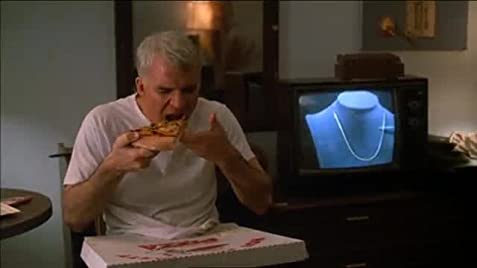The FAR reheats some classic movies scenes, settings, and trivia, thinks about the currents state of television and muses on an old song. Grab your plate and take your fill.
Thanks to Casper for contributing this week, the big slice of pie is hers. Send articles throughout the next week to ploughmanplods [at] gmail, post articles from the past week below for discussion, and have a Happy Friday!
For Polygon,
Crooked Marquee’s Emmy Potter compares and contrasts the similarly set but differently gendered Dead Poet’s Society and Mona Lisa Smile:
At Vulture, Kathryn VanArendonk takes on the struggle of network televisions to portray (or ignore) the pandemic:
I’m still not sure how to feel about what’s happening on network TV this fall. My anxiety over the past year has totally reshaped my internal system of alarms; my brain registers masks on the faces of strangers in the same way I once registered characters obviously driving around in fake cars, totally ignoring the road. I’m instantly distracted, and whatever fictional suspense I was living in totally collapses. It would be lovely to turn off the alarm in my mind that shrieks at the sight of all these beautiful TV people striding around their workplaces with their nakedly exposed mucus membranes. I can’t; it’s all I can see.
Courtesy Constance Grady and Vox – the true story of Arlo Guthrie’s rambling song “Alice’s Restaurant”:
In my own hometown of Philadelphia, WXPN’s Helen Leicht plays it every year at noon, and in non-pandemic years my family gathers around the radio like we’re in an old-timey Norman Rockwell painting, ripping apart bread for the stuffing and singing, “Had a Thanksgiving dinner that COULDN’T BE BEAT!” Guthrie’s “Alice’s Restaurant” was originally released in 1967 as “Alice’s Restaurant Massacree,” and it’s only nominally about either Thanksgiving, Alice, or her restaurant.
We’re all tired, so let’s just sack out on the couch and learn some facts about Planes, Trains and Automobiles from Mental Floss:
In John Hughes: A Life in Film, Kirk Honeycutt wrote that one actor, who played a truck driver, was only supposed to have one line and work for one day. Hughes chose to keep him on standby. The actor ended up working enough days while the crew waited for the snow to come that he was able to make a down payment on a house. It’s very possible this was Troy Evan’s, who was uncredited, as the shy truck driver in the movie. He went on to appear, credited, on ER for the show’s final five seasons as Frank Martin.

